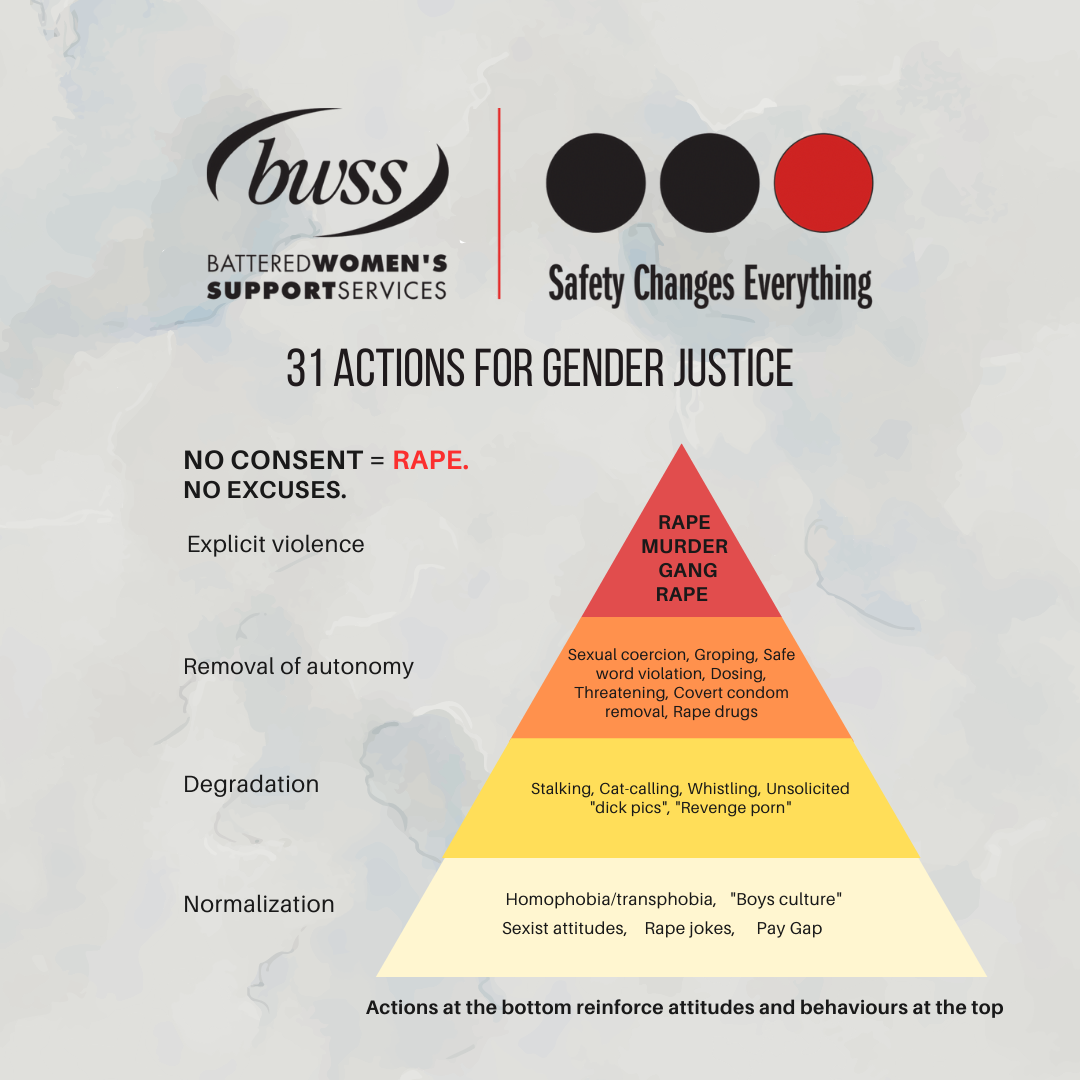We’ve created 31 Actions for Gender Justice to raise awareness, spark conversations and take action that transforms gender and power relations, and the structures, norms and values that underpin them. Every day for the month of March we will highlight an action that advances gender equity and justice for International Women’s Day (IWD).
This is by no means an exhaustive list! There’s so much more that we can do to advocate for political, economic and social changes.
Normalize a Culture of Consent
31 Actions for Gender Justice: Day 4
In Canada, approximately 4.7 million women -or 30% of all women age 15 and older- reported they have been sexually assaulted at least once since the age of 15.[1] Sexual assault is rooted in gender inequality. Prevention education, change of attitudes and behaviours, justice and support for survivors and awareness are key to fight against any form of sexual violence.
Join this effort and promote a safer and better sexual culture by talking about what consent is and what it’s not, supporting prevention programs for teens, sharing information with your networks, advocating for support for survivors and calling out rape culture.
Seek help if you or someone you know have been sexually assaulted. Call/text/email BWSS Crisis Line. You are not alone.
Say NO to the glorification of violence against women, objectification of women, victim-blaming, rape jokes, “locker room talk” and other attitudes and behaviours that degrade women.
Learn and share what consent is:
Given freely and willingly – without pressure, fear, manipulation, intimidation, threats, guilting or under the influence of drugs or alcohol.
Informed – without being deceived or being told half-truths.
Enthusiastic – doing only what you want and not what you are expected to do.
Specific – saying yes to one thing like kissing or making out doesn’t mean that you are saying ‘yes’ to sex.
Reversible – anyone can change their mind about what they feel like doing, anytime.
Coherent – every participant in sexual activity must be capable of giving consent. Failure to recognize that the other person was too impaired to consent is not “drunk sex.” It’s sexual assault.
Same rules for everyone – including people in marriage and committed relationships.
No consent = Rape. No excuses.
[1] Statistics Canada. Gender-based violence and unwanted sexual behaviour in Canada, 2018: Initial findings from the Survey of Safety in Public and Private Spaces. Retrieved from https://www150.statcan.gc.ca/n1/pub/85-002-x/2019001/article/00017-eng.pdf
[1] Statistics Canada. Gender-based violence and unwanted sexual behaviour in Canada, 2018: Initial findings from the Survey of Safety in Public and Private Spaces. Retrieved from https://www150.statcan.gc.ca/n1/pub/85-002-x/2019001/article/00017-eng.pdf





